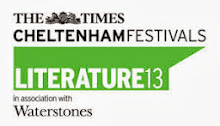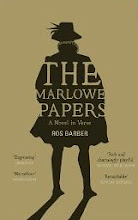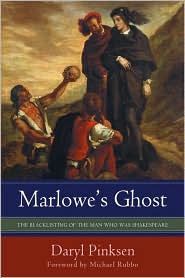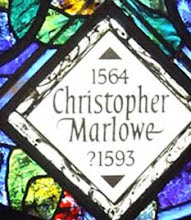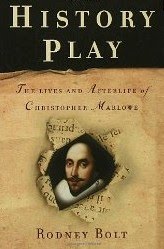From the earliest days to times comparatively recent a candidate for a degree at Cambridge was required to maintain a syllogistical dispute in the schools, which disputation was called 'the Act '. If he was successful and admitted to the full privileges of a graduate he was said 'to commence' in Arts or a Faculty, and the ceremony at which he was so admitted was, and is, called at Cambridge 'the Commencement'. If the candidate went on to a higher degree he was said 'to proceed'.He then referred to a passage from a speech in Timon of Athens (4.3) in which Timon is addressing Apemantus, and the words 'proceeded', 'degrees' and 'commence' all appear in quick succession:
Hadst thou, like us from our first swath proceededGray also pointed out how the words 'act' and 'commence' seem to be associated in Shakespeare's mind, citing the following examples:
The sweet degrees that this brief world affords . . .
Thy nature did commence in sufferance, time
Hath made thee hard in't.
Learning is a mere hoard of gold till sack commences it and sets it in act and use.
(2 Henry IV, 4.3.24-26)
I from the orient to the drooping west,That the combination of 'acts' and 'commencement' was a peculiarly Cambridge thing is given support in Erasmus's Praise of Folie (tr. Thomas Chaloner, who was not a Cambridge alumnus), which has "At their Actes and Comencements ye dooe see theim swadled in with so many cappes, coyues, and furde hoodes as they weare." Erasmus spent five years (1510 to 1515) as Professor of Divinity at Queen's College there.
Making the wind my post-horse, still unfoldThe acts commenced on this ball of earth.
(2 Henry IV, Prologue 3–5)
When he to madding Dido would unfold
His father's acts, commenced in burning Troy!
(2 Henry VI , 5.2.117–8)
Making it clear that 'the Acts' were a peculiarly Cambridge procedure, Thomas Nashe, who was a contemporary of Marlowe at Cambridge also (according to the OED) wrote in his Strange Newes (p.279)
Acts are but idle wordes,
and..Pumps and Pantofles...therefore do no Acts ... onelie ... to Oxford they
trudge,..and there are confirmed in the same degree they took at Cambridge.
We should be careful not to jump to conclusions about the simple
juxtaposition of the words 'act' and 'commence,' however, since 'commencement'
was also used for the coming into force of some legislation, regulation, treaty
or Act of Parliament.
Rather more interesting, therefore, is Gray's comment that the clearest evidence that it was from Cambridge, not from Oxford, that Shakespeare learnt University phrases is in Lear's complaint to Regan of his usage by Goneril:
Rather more interesting, therefore, is Gray's comment that the clearest evidence that it was from Cambridge, not from Oxford, that Shakespeare learnt University phrases is in Lear's complaint to Regan of his usage by Goneril:
'Tis not in thee ... to scant my sizes.As Gray puts it, quoting Minsheu, Guide into Tonges (1617), a size "is a portion of bread and drink; it is a farthing [i.e. a small amount] which schollers in Cambridge have at the buttery." He continues, saying that "The 'abatement' of sizes was a College punishment, alternative to 'gating', to which there seems to be allusion in Lear's next words 'to oppose the bolt against my coming in'."
(King Lear, 2.2.346–8)
In 1923, Frederick Boas repeated Gray's observations, with approval, in his book Shakespeare and the Universities.2
Interestingly, however, there appears to be one bit of Cambridge jargon which was dismissed by Gray and ignored by Boas. It was the use of the word 'keep', in the sense of 'dwell'. Gray claimed that this was "common enough in Elizabethan English," but this is an opinion which I have so far been unable to substantiate.
Quite the opposite in fact, as was argued by William Stanley Melsome in 1945.3 He noticed that the use of the word 'keep', meaning to live, lodge, dwell, or reside is purely a Cambridge University term and was "not used elsewhere in the British Empire." He claimed that it was not used in that sense at Oxford, and that it occurs in Shakespeare in one form or another nineteen times. Here are some of them.
Knock
at his study, where they say he keeps
This Armado is a Spaniard that keeps here in court,
The Oxford English Dictionary
supports this specifically Cambridge usage of 'keep' (intransitive) as "To
reside, dwell, live, lodge." It is noted that it is still used in this
sense colloquially at Cambridge, and the quotations they give are helpful.
To ruminate strange plots of dire
revenge.
(Titus Andronicus, 5.2.5–6)
This Armado is a Spaniard that keeps here in court,
(Love's Labour's Lost,
4.1.97)
That his chief followers lodge in towns about him,
While he himself keeps in the cold field?
(3 Henry VI,
4.3.13–14)
... all the skyey
influences
That dost this habitation where thou keep'st
Hourly afflict.
(Measure for Measure,
3.1.8–11)
Enquire me first what Danskers are in Paris,
And how, and who, what means,
and where they keep,
(Hamlet, 2.1.7–8)
I will see you
hanged like clodpolls ere I come
any more to your tents. I will keep where there is wit
stirring, and leave the
faction of fools.
(Troilus and Cressida,
2.1.118–120)
My Lord Ulysses, tell me, I beseech you,
In what place of the field doth Calchas keep?
(Troilus and Cressida,
4.4.16–2)
We learn no other but the confident tyrant
Keeps still in Dunsinane,
(Macbeth, 5.4.8–9)
... it is in Gloucestershire.
'Twas where the madcap Duke
his uncle kept –
(1 Henry IV,
1.3.241–2)
It is the most impenetrable cur
That ever kept with men.
(Merchant of Venice,
3.3.18–19
We may also note that it is a usage familiar to
Marlowe too.
And more. Of my knowledge, in
one cloister keep
Five hundred fat Franciscan
friars and priests:
(Massacre at Paris,
1.2.84–85)
1504 in S. Tymms Wills & Inventories of Bury St. Edmunds (1850) 102, I wyll yt he or they shall keep at Cambryge at scoole.Although Shakespeare's use of such Cambridge terms has been known about for many years, subsequent biographers have not had much to say on the subject. In fact, a quick look through a dozen or so of the more recent ones revealed nothing at all. Boas himself hazarded a guess as to how it might have happened, derived from Gray's original suggestion.
1601 P. Holland tr. Pliny History of the World I. 127 Among the mountaines of this tract, the Pygmæans, by report do keepe. [Philemon Holland was at Trinity College, Cambridge.]
1633 P. Fletcher Purple Island v. xxv. 53 Here stands the palace of the noblest sense; Here Visus keeps. [Phineas Fletcher was at King's College, Cambridge.]
1719 in R. Willis & J. W. Clark Architectural History of the University of Cambridge. (1886) II. 214 In ye Room where Mr Maynard keeps there was acted..a Pastoral.
Kempe and two of his fellows in the first folio list of players were Cambridge graduates, while many of Shakespeare's dramatic predecessors and contemporaries – Marlowe, Greene and Nash, among others – had come from the same nursery of arts. This probably accounts for the curious fact that the dramatist shows familiarity with certain distinctively Cambridge terms.Perhaps, if they knew about it at all, other biographers have found this explanation unconvincing, and preferred to remain silent. Non-Stratfordians, on the other hand, have naturally been less reticent. Knowing that William Shakespeare of Stratford didn't go to university at all, let alone Cambridge, how do the main alternative authors fair?
According to the Oxford Dictionary of National Biography, William Stanley, 6th Earl of Derby, attended St John's College, Oxford (1572–6?), so no points for him.
According to the Oxfordian Ramon Jiménez,4 Edward de Vere, 17th Earl of Oxford "matriculated at Cambridge at age eight, and was later awarded Masters’ Degrees by both Oxford and Cambridge," but this is slightly misleading. In fact Oxford matriculated as an impubes (immature) fellow-commoner of Queens' College, Cambridge, in November 1558, remaining for only one academic year and taking no degree. In August 1564, however, he accompanied the queen on progress to Cambridge, and to Oxford in September 1566 and, like others in the queen's retinue, was granted an unearned MA on both occasions. Being a fellow-commoner meant that he had the privilege of dining at the Fellows' table, and was therefore probably untroubled by the size of his 'sizes'.
Francis Bacon and his elder brother Anthony, being the sons of the Lord Keeper, Sir Nicholas Bacon, were also fellow-commoners. They went up to Cambridge on 5 April 1573 and matriculated from Trinity College on 10 June. According to the ODNB, they stayed there until December 1575, although their period of residence was twice interrupted when plague broke out in the Cambridge area. Venn5 tells us that Francis "resided for two years." In 1594, on a trip north on behalf of the Queen, illness prevented him from getting any further than Huntingdon, so he took this opportunity to visit Cambridge and take his MA degree.
Bacon is certainly likely to have been familiar with the terms discussed here, but Christopher Marlowe, with six and a half years 'keeping' at Cambridge as a pensioner, is by far the most likely to have a Cambridge vocabulary in his blood. He went up to Corpus Christi College in late 1580, and left early in 1587. There is also, of course, very copious evidence of his being a regular customer at the buttery, from which those 'sizes' were privately ordered.
Of the other authorship 'candidates' with any sort of following these days only Roger Manners, 5th Earl of Rutland (although he was another privileged fellow-commoner) seems able nearly to match Marlowe for time spent at Cambridge.6
© Peter Farey, September 2013
Peter Farey is a founding member of the International Marlowe-Shakespeare Society and twice joint winner of the Hoffman Prize for "a distinguished publication on Christopher Marlowe."
1 Gray, Arthur (1916) "Shakespeare and Cambridge," in A Book of Homage to Shakespeare. Oxford University Press, p.262.
2 Boas, Frederick S. (1923) Shakespeare and the Universities. Blackwell, Oxford.
3 Melsome, W. S. (1945). The Bacon-Shakespeare Anatomy. G. Lapworth. p.188.
4Jiménez, Ramon. The Case for Oxford Revisited.
5Venn, J. & Venn, J. A., eds. (1922–1958). Alumni Cantabrigienses. Cambridge University Press.
6Venn, as above. Jarmusch Swinton
Click here for the blog's home page and recent content.


